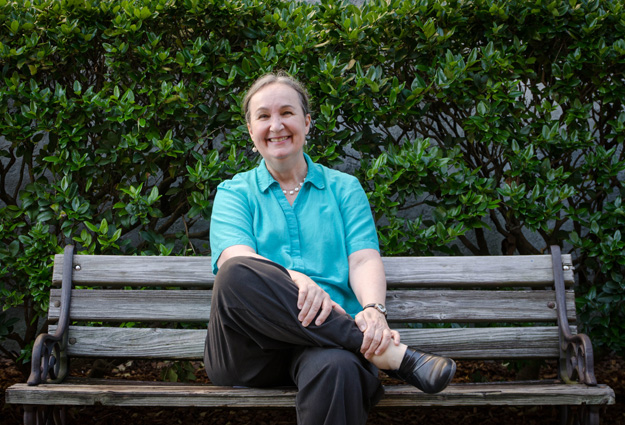Station Break
Jemila Ericson looks ahead after longtime radio career

A chapter in Wilmington radio closed on December 26 when JEMILA ERICSON signed off as host of WHQR’s classical programing.
Beginning as a volunteer, Ericson narrated a series of dramas, acted, and did voices for short stories before taking over the classical programming slot. She worked alongside other well-known interviewers including Jim Polson, Scott Simpson, and Aileen Leblanc before she and then manager Bob Workman created the Midday Interview, which became her signature. She leaves the station after two decades to begin the next phase of her life.
“A number of important things happened this year,” she said in December. “I took care of my mother about ten years, and she passed in March. I also had a milestone birthday. I’m looking at my life. What do I really most want to be doing? What am I passionate about?”
The answers, she says, include a return to acting and storytelling, exploration of her spirituality, and communion with animals.
An ordained minister, she has performed weddings and memorial services, which she finds to be “very moving experiences.”
She also hopes to travel.
“I want to go back to India and work with Homes of Hope (a Wilmington-based nonprofit that works with orphanages in India),” Ericson says.
She has scheduled a retreat with a Tibetan lama.
“I’ve been drawn to Tibet and Tibetan Buddhism for a long time and haven’t done anything about it, so I’m going to jump into it a little bit,” she says. “I hope to have a better sense of who is Jemila.”
And she wants to work with animals.
“Since I was a child, I’ve done a sort of laying on of hands healing, and I’ve worked in the past with traumatized children, but I’m especially drawn these days to work with animals,” she says. “I think I’m going to have a practice as a healer and communicator. When I look at what makes me happy and excited and passionate these days, I really see me with animals.”
Looking back at her twenty-year stint at WHQR, among her strongest memories are interviews with John Bul Dau, one of the Lost Boys of Sudan.
“It was incredible to meet him,” she says, “someone who had gone through this horrible experience and yet was making a fulfilling life for himself here and changing a lot of lives along the way as he did so”
She interviewed local therapist Tab Ballis on his volunteer work at Ground Zero in the days immediately following 9/11, an interview she found to be especially moving. She connected with author Julie Hedgepeth Williams who wrote A Rare Titanic Family about the survival of her great-uncle Albert along with his wife and infant son. Ericson’s own grandmother and great-aunt were to have been steerage passengers on the voyage, but the aunt had a strong premonition of disaster, and the two returned home to Sweden.
Ericson’s fondest memories and feelings, however, are for the community she adopted.
“I don’t think I’ve ever felt so embraced and so loved by a community,” she says. “There’s a sort of Southern hospitality and small-town closeness in a pretty good sized city.”
That’s also the nature of radio, she says. It’s very intimate.
“I’ve been in people’s homes, in their offices, in their cars, in the shower,” she says about her broadcasts. “They know me. They don’t know all of me, but they know a lot about me, and in an odd way, I feel like I know a lot about them. I do feel people when I’m on the air. I do feel that connection.”